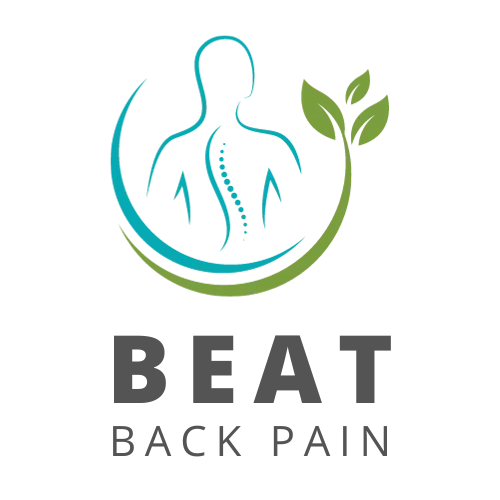Discover Proven Strategies for Easing Back Pain and Improving Spinal Health.
Transform Your Life: Say Goodbye to Back Pain Forever!
Unlock Your Path to Spinal Health: Book Your Free Online Consultation Today!
ABOUT ME
I am thrilled to welcome you to our website, designed as a comprehensive resource for anyone struggling with back pain. My goal with this platform is to extend the reach of my expertise beyond the confines of my practice, providing accessible and effective solutions to a wider audience.
This website serves as a hub for knowledge, guidance, and support, offering an array of resources from free educational content to in-depth online coaching programs. It's my mission to make spinal health and pain-free living achievable for all, no matter where you are on your journey towards wellness.
In my decades of experience, I've seen firsthand the transformative impact that the right guidance can have on an person's life. Through this website, I aim to replicate that success on a larger scale. My hope for each of our clients is to empower them with the knowledge, skills, and confidence needed to take control of their back pain and spinal health.
Whether it's through our course, personalised online consultations, or comprehensive coaching programs, I am dedicated to helping our clients achieve lasting pain relief, enhanced flexibility, and a stronger, more resilient back, ultimately leading to a healthier, more active lifestyle.


Dr. Peter Bennett BSc DC
Experienced Chiropractor & Renowned Back Pain Expert
With over 30 years of dedicated service in the field of chiropractic care and back pain management, Dr. Peter Bennett has established himself as a leading expert and a trusted health coach. His journey began with a deep passion for understanding the complexities of spinal health and a commitment to holistic wellness.
Dr. Bennett's approach goes beyond traditional chiropractic methods. He integrates the latest research and techniques in spinal health, offering personalised treatment plans that cater to the unique needs of each individual. Over his extensive career, Dr. Bennett has helped thousands of people reclaim their lives from debilitating back pain, guiding them toward improved flexibility, strength, and overall spinal resilience.
His expertise is not just in treating pain but in empowering his patients to lead healthier, more active lives. Dr. Bennett believes in the transformative power of preventive care and patient education, ensuring that every person he works with gains the knowledge and tools necessary to maintain their spinal health.
As a health coach, Dr. Bennett's philosophy centres on a holistic view of health – addressing physical, emotional, and lifestyle factors to achieve optimal wellness. His empathetic and comprehensive care has earned him a reputation as a compassionate healer and a true advocate
Advantages
Online spinal therapy offers a blend of convenience, accessibility, and personalised care, making it an appealing option for many seeking relief from back pain and spinal issues.
Convenience: Access treatment from the comfort of your own home, eliminating the need for travel to a clinic or therapy centre.
Flexibility in Scheduling: Online therapy sessions can be scheduled at times that are most convenient for you, accommodating your personal and professional commitments.
Reduced Costs: Save on transportation and related expenses often associated with in-person therapy visits.
Continuous Support: Benefit from ongoing support through digital communication tools, providing more consistent contact with your therapist.
Access to Digital Resources: Use online tools, videos, and educational materials that can enhance your therapy experience.
Safe for High-Risk Individuals: Especially beneficial for those with compromised health or mobility issues, reducing the risk of exposure to illnesses like COVID-19.

The Simple Idea That Transformed How I Handle Stress
Have you ever found yourself reacting to a stressful situation in a way that you later regret? Maybe you said something in the heat of the moment or let frustration dictate your actions. I’ve been there. But discovering one simple idea has made a world of difference in how I handle stress—and it might help you, too.
It’s the concept of stimulus – think – response.
Most of us live in a reactive mode. Something happens (stimulus), and we respond immediately. This reflex is great for quick physical reactions, like jumping out of the way of a speeding bicycle. But in our daily lives, when it comes to relationships, work challenges, or emotional situations, this automatic response can often create more stress.
What I’ve learned is that between the stimulus and the response, there’s a space—a chance to think. That pause, no matter how brief, is where the magic happens.
This idea has roots in stoic philosophy, which emphasises focusing on what we can control and letting go of what we can’t. Viktor Frankl, a neurologist and Holocaust survivor, beautifully captured this concept in his book Man’s Search for Meaning:
“Between stimulus and response, there is a space. In that space is our power to choose our response. In our response lies our growth and our freedom.”
A Brief Look at Stoicism
Stoicism is a philosophy that originated in ancient Greece and gained prominence in Rome. Its core teachings revolve around the idea of accepting what we cannot control, mastering our emotions, and living a virtuous life. Here are three of the main stoic philosophers whose ideas continue to resonate:
Epictetus (55–135 AD): A former slave who taught that while we cannot control external events, we can control our thoughts and attitudes. His teachings emphasise the importance of focusing on what’s within our power.
Seneca (4 BC–65 AD): A Roman statesman and playwright, Seneca wrote extensively on how to navigate life’s challenges with wisdom and composure. His letters and essays offer practical advice on how to deal with stress and adversity.
Marcus Aurelius (121–180 AD): The Roman emperor and author of Meditations, Marcus Aurelius practiced and wrote about stoicism while leading an empire. His reflections on leadership, responsibility, and inner peace remain some of the most influential stoic texts.
These philosophers taught that life’s challenges are opportunities to practice self-discipline, patience, and resilience. They believed that by focusing on what we can control—our thoughts, actions, and reactions—we can live with greater peace and purpose.
How I Apply This in Daily Life
When I started practicing this idea, I realised how much of my stress came from reacting without thinking. A frustrating email, a sharp comment, or even a simple inconvenience would spark an automatic response. Now, I aim to pause. That pause, even if it’s just a deep breath or a few seconds of silence, helps me regain control.
Here’s how you can apply this idea in your own life:
Recognise the stimulus. Notice the moment that triggers your stress or reaction. It could be a challenging situation, an unexpected demand, or even just a negative thought.
Pause. Take a breath, count to five, or give yourself time to process what’s happening. This is your “space.”
Choose your response. Ask yourself, “What’s the best way to handle this? What outcome do I want?” This conscious choice often leads to a response that reduces stress rather than amplifies it.
Recommended Reading
If you’re curious about this approach to stress, I highly recommend Viktor Frankl’s Man’s Search for Meaning. For a deeper dive into stoic philosophy, you can explore The Daily Stoic by Ryan Holiday or read the original works of Epictetus (The Enchiridion), Seneca (Letters from a Stoic), or Marcus Aurelius (Meditations).
Give it a try. The next time you feel stress bubbling up, take a moment to pause and think before responding. That small shift might just change everything.
What do you think? Have you tried something like this before? Let me know in the comments—I’d love to hear your thoughts.
Email:peter@yourspinalhealth.com
Site: www.beatbackpain.co.uk

